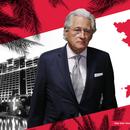Apr 25 2018 27 mins 4
On Dec. 14, 2016, one month after his election, President-elect Donald Trump had a call with the prime minister of Vietnam. At a time when foreign governments were scrambling to contact Trump, the conversation was a victory for the Vietnamese. State television broadcast footage of the call, with the prime minister surrounded by other smiling officials. But inside the State Department, officials were puzzled and concerned. Historically, post-election calls to heads of state are carefully choreographed affairs. Careful deliberation goes into who the president-elect speaks to first and career diplomats deliver background briefings on issues to be raised and avoided. The Trump transition operation ignored those conventions. The contact with Vietnam was not set up by the State Department. Instead, Trump’s personal lawyer, Marc Kasowitz, helped arrange the call. Kasowitz had another client with a keen interest in Vietnam: Philip Falcone, an American investor with a major casino outside Ho Chi Minh City. After the Trump call, Kasowitz traveled to Vietnam with Falcone. They met with government officials as part of an effort to persuade Vietnam to lift a ban on gambling for its citizens. Such a shift would deliver vastly more gamblers to Falcone’s casino. “Phil asked if Marc could arrange a phone call between the president and prime minister of Vietnam,” said a person familiar with the call. “Marc did that.” In an interview, Falcone denied he requested the call. He added there was nothing improper about arranging such a call. “It’s just lending a hand when people ask you,” he said. A spokesman for Kasowitz acknowledged the lawyer provided a “telephone contact” to the Vietnamese government to call Trump. Kasowitz has represented Trump for over 15 years, including in the Trump University fraud case, against allegations of sexual harassment, and, most recently, in the Russia investigation. Falcone, who was barred from the securities industry several years ago after admitting to wrongdoing in managing his hedge fund, has been trying for several years to salvage his several hundred-million-dollar-bet on Vietnam’s gaming industry. So far, that investment has not paid off, in large measure because of the rules limiting casinos to foreign bettors. It’s not clear whether Trump mentioned the casino on his December 2016 call with the prime minister or in any other communications with the Vietnamese. A White House spokeswoman referred all questions to Kasowitz. The Vietnamese embassy in the U.S. didn’t respond to requests for comment. U.S. embassy officials in Vietnam heard about the call in advance from Falcone’s casino company, not the Trump transition. And they never received information from the Trump transition about what was said on the call; their only understanding of what was discussed came from Vietnamese officials, according to a person with knowledge of the episode. “You want the State Department to set up calls and take notes,” said Susan Rice, a senior adviser on Barack Obama’s transition in 2008-09 who went on to become National Security Advisor. “You want contacts made in a fashion that can be accountable to the president-elect. You want background briefings for the president-elect.” In November 2008, the Obama transition explicitly warned high-profile campaign supporters not to “under any circumstances” speak to “any foreign officials, or embassies on behalf of the transition or President-elect Obama. The Vietnam call was just one instance of how the Trump administration has blurred the lines between private business interests and those of the country. Trump, who did not divest from his own real estate empire, has declared America “open for business.” Many have tried to take him up on the promise. Business people, lobbyists, friends, and foreign dignitaries have all vied for access to Trump since his election, believing it can mean lucrative contracts, eased regulations, or o [...]
